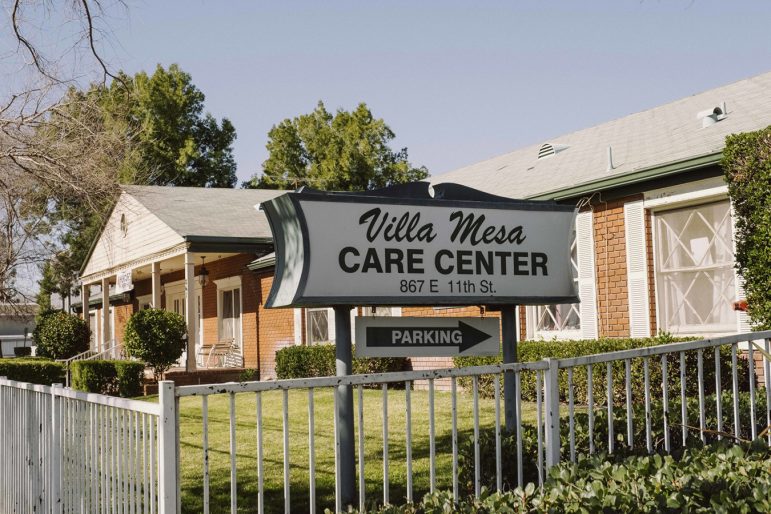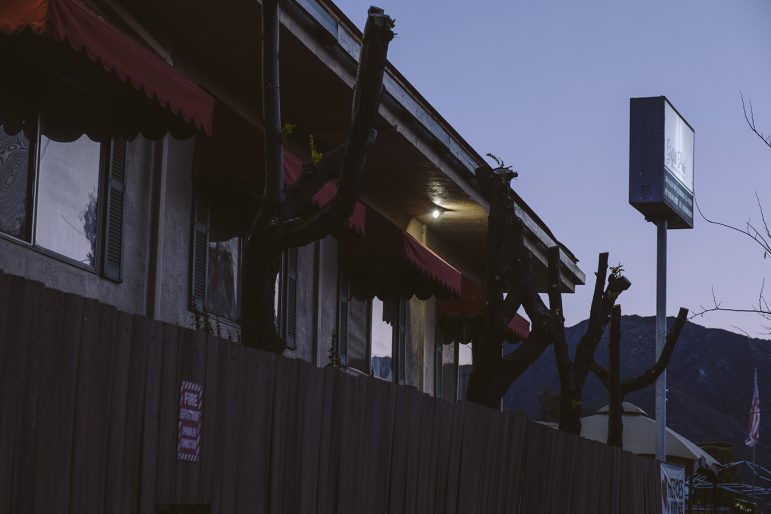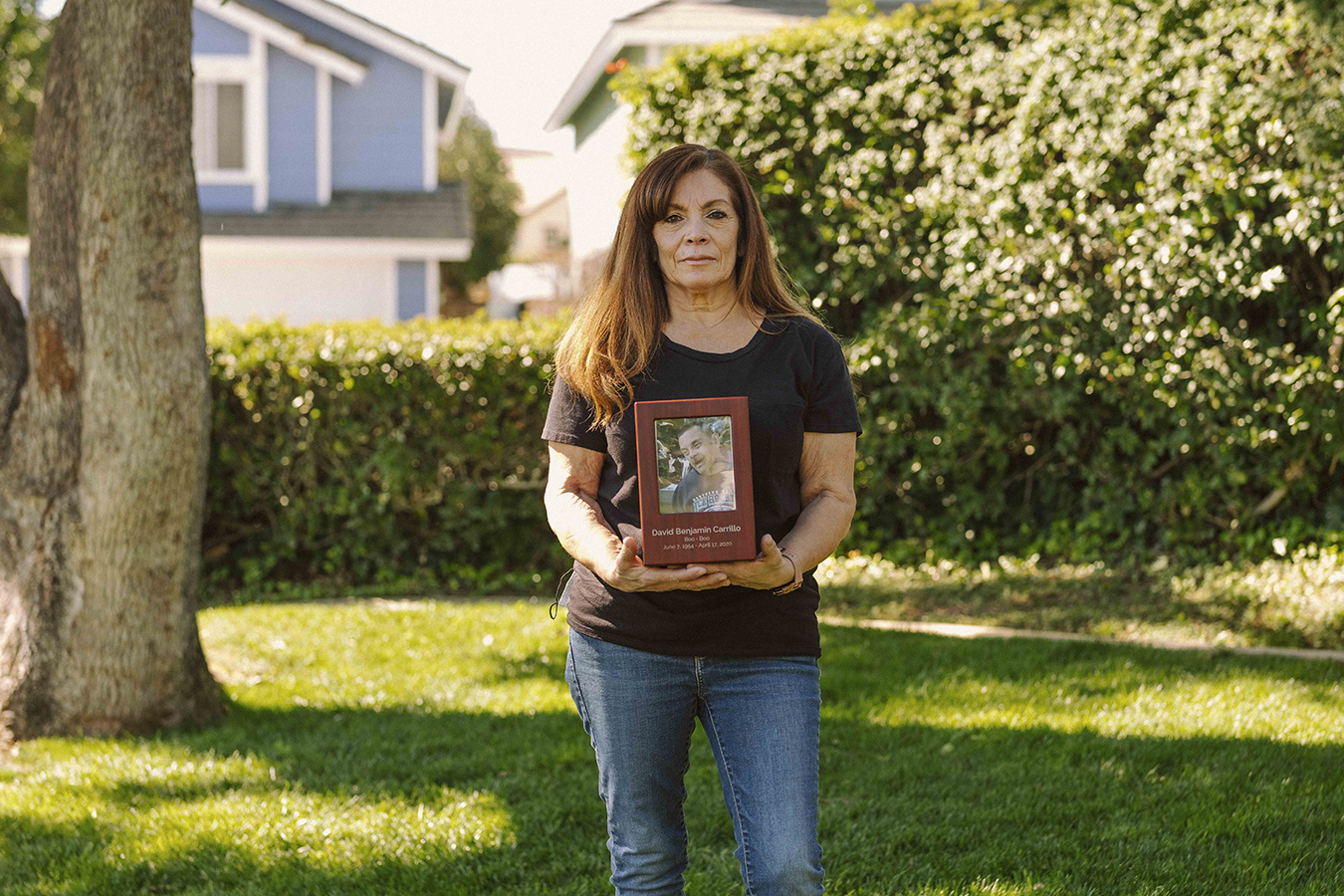The pandemic has highlighted poor care in America’s nursing homes, where nearly 175,000 people have died of covid-19 — a third of all deaths from the disease nationwide.
Even before the pandemic, patient advocates pointed to dangerous conditions in U.S. nursing homes, including staffing shortages and infection control failures. Many nursing homes didn’t provide quality care, they charged.
Studies have found that homes owned by for-profit entities racked up more deficiencies and had lower staffing levels, compared with nonprofit facilities. And as the number of for-profit nursing home chains has increased, industry watchdogs and patient advocates say, states aren’t doing enough to vet nursing home owners.
California is home to about 1,200 licensed nursing homes. Those facilities care for 100,000 nursing home patients — the biggest nursing home population of any state. For those fragile and vulnerable residents, the situation is fraught: A KPCC investigation found that under state regulations nursing home operators can continue running facilities even after they’ve been denied a state license.
Cynthia Carrillo learned about this obscure regulatory loophole after the tragic death of older brother David Carrillo, who caught covid-19 while living in a Southern California nursing home. Cynthia, 58, lives in Rancho Cucamonga, California.
David had Down syndrome and until late 2019 lived with Cynthia and her family. On Christmas Day 2019, Cynthia noticed David wasn’t acting like himself.
“He was kind of yelling, screaming. And we’re like, OK, something’s wrong,” Cynthia recalled. She said David was afraid to walk down the stairs in their house. Fearful that her brother was having a medical emergency, she took him to a nearby hospital. There, she said, a doctor told her he was developing dementia.
After being discharged, David landed in Villa Mesa Care Center, a nursing home. It was supposed to be a temporary placement while Cynthia looked for a single-story home without stairs, so the family could bring David back to live with them. “It was very difficult to leave him and go home. So, our goal was to be able to get him out as quick as we could,” she said.
Cynthia visited every day, but she said she watched his condition deteriorate. She said that before arriving at Villa Mesa, David walked regularly but, afterward, she noticed he was frequently in a wheelchair and wasn’t moving around much.
In a lawsuit she has since filed against the nursing home, Cynthia claimed that staff members admitted to giving him a psychotropic drug she didn’t authorize, which made him drowsy.
By March 2020, Cynthia had decided to place David in a group home — another temporary fix while she continued her house search. Then the pandemic took hold. David remained at Villa Mesa. When Cynthia went to see him on March 30, she was allowed to visit only through a window. She said there was a sign on the door saying no one should enter without a mask, and yet staff members in the room weren’t wearing masks.
“It was very hard for us to see that and to see the staff walking around like nothing was going on, you know, regarding the pandemic,” Cynthia said.
Ten days later, she was awoken after midnight by a phone call. It was the hospital across the street from the nursing home. David was in respiratory distress and needed to be intubated. The doctor told her he was coherent, but Cynthia couldn’t visit her brother. “I couldn’t be there with him, to even let him know everything would be OK,” she recalled.

She still cries at the memory of that night. “He was probably wondering where I was.”
David Carrillo died of covid a week later, on April 17, 2020. He was 65.
Since the pandemic began, at least 23 residents at Villa Mesa, a 99-bed facility, have died of the virus, according to federal data.
Cynthia still can’t drive by the building without getting upset. “There’s just too much,” she said. “I get angry. I get frustrated.”
A Troubled Chain Seeks to Grow
According to state records reviewed by KPCC, Villa Mesa Care Center is connected to a business called ReNew Health. Across California, KPCC found at least 26 facilities connected to ReNew and ReNew’s owner, Crystal Solorzano — they stretch from Orange County to the agricultural Central Valley, and as far north as the San Francisco Bay Area. Solorzano owns, or is applying to own, the majority of them; at five of the nursing homes, including Villa Mesa, ReNew has been involved in management or administration.
In April 2020, the California Department of Public Health denied Solorzano licenses for nine nursing homes she had applied to take over.
Villa Mesa was not one of the nine homes. But Cynthia Carrillo said it’s still troubling.
“I think [the state] should be able to close it, close them down completely,” she said.
According to California regulations, Solorzano’s businesses can still operate the nine facilities despite the license denials.
“The approval process, the licensure process is a farce,” said Tony Chicotel, an attorney with California Advocates for Nursing Home Reform. He explained that nursing home owners can take over existing facilities without first getting a license from the state, as long as they submit a license application. Those applications can take years to be processed by state authorities.
“It’s a really bizarre, completely exploited process,” Chicotel said.
In its license denial letters to Solorzano, California’s Department of Public Health said it based that decision on a long record of violations at her nursing homes.
At one facility, a patient with schizophrenia was inappropriately discharged and then went missing for two weeks, before being found unconscious in a park, underneath his wheelchair, according to the state. At another, a nursing assistant was charged with raping a 52-year-old woman who had mental health conditions.
The latter incident was classified as a case of “Immediate Jeopardy,” the federal government’s term for a situation so dire that regulators determine it “caused, or is likely to cause, serious injury, harm, impairment, or death to a resident.”

The facilities connected to ReNew and Solorzano provide care for 1 in 50 of the state’s nursing home residents, but they are responsible for nearly 1 in 10 Immediate Jeopardies in California since 2019, according to KPCC’s analysis. Immediate Jeopardies are the most severe deficiency a nursing home can be cited for by the Centers for Medicare & Medicaid Services.
In addition to considering quality of care, regulators who review change-of-ownership applications also determine whether an “applicant is of reputable and responsible character.” They found Solorzano lacking. According to the denial letters, the department’s review “revealed that in or around July 2008, you submitted fraudulent documents to obtain your nursing home administrator license,” specifically a fraudulent college transcript from Touro College.
Staffers at both Touro College and Touro University confirmed that Solorzano had not received a degree from their institutions.
California’s Licensing Process
The situation calls into question the state’s ability to ensure nursing home operators provide quality care.
“California has, in a sense, rolled out the red carpet for bad providers,” attorney Chicotel argued. “You can get in the building, you can be a squatter, and they can’t get you out.”
In a statement, a ReNew spokesperson wrote that “Ms. Solorzano is fully qualified to own and operate nursing homes, and in fact has specialized in acquiring troubled facilities and turning them around to preserve and maintain critical bed space that would have otherwise been unavailable during the pandemic.”
The statement also said that “Solorzano’s only focus is maintaining the health and safety of our employees and residents” and added that during the pandemic “facilities continue to follow infection prevention protocols to protect the health and wellbeing of the residents and staff.”
The statement did not respond to the violations mentioned in the state’s denial letter or the college transcript that CDPH said is fraudulent, although KPCC raised both in a letter to Solorzano and ReNew.
It also didn’t address a series of Instagram stories Solorzano shared that promoted misinformation about coronavirus vaccines, including one that said in its description “the COVID vaccine should be avoided at all costs.”
Nearly 200 people have died of covid-19 in facilities connected to ReNew, according to federal data.
The beds in facilities like these will be needed as California’s population ages. Demand for nursing home beds is expected to soar by 2030. When a nursing home must shut down, the process can be extremely disruptive for vulnerable patients, and finding them new places to live can be difficult.
Here’s how the California Department of Public Health explains the licensing process: The agency said new owners can enter management agreements with the previous ones while the new owners’ license applications are pending. Most applications are approved.
But when CDPH denies them — as it did with nine of Solorzano’s — the aspiring owners can continue running the facilities even after the denial, so long as they appeal.
The appeal process can drag on for years.
Advocates are calling for more transparency when nursing homes switch hands. Currently, nursing home owners can acquire facilities without first telling the state. One fix? Making nursing home owners obtain a license before operating a facility, and giving the public an opportunity to comment on any change-of-ownership applications.
A recently introduced bill in California would do just that: require nursing home owners to get licensed before taking over a facility.
The legislation is authored by California Assembly member Al Muratsuchi, a Democrat from coastal Southern California. “For these bad actors to be able to continue to operate without a license, and with a record of past abuses, is simply not acceptable,” Muratsuchi said. “The current system is broken. And we need to fix it.”
Mark Reagan, general counsel for the nursing home industry group California Association of Health Facilities, takes a different view. “At the end of the day, I don’t think that patient care is being compromised,” he said. Just because an application is rejected, Reagan said, doesn’t mean the state forfeits its regulatory tools. Reagan argues that the slowness of the ownership-change process creates headaches and uncertainty for owners — even though most applications are approved.
The bill to overhaul the licensing process has been pushed back to 2022.
‘States Aren’t Doing a Good Job’
Nursing home regulation — and payment — is split between the federal government and states. Almost all nursing homes receive some federal reimbursements, and therefore must meet federal requirements, which are overseen by state inspectors. The federal certification process makes payments to nursing homes possible, but states serve as gatekeepers because they grant the actual licenses needed to own and operate nursing homes. The criteria for licensure vary by state.
Patient advocates and health researchers say the licensing process can have life-or-death implications in all 50 states. One problem involves the consolidation of the industry, and the growth of nursing home chains, which can operate across state lines. That complicates the work of state health departments. So does the complex web of LLCs and other corporate entities that make up the modern nursing home business. The corporate webs make it difficult for patients’ families and even regulators to figure out who is responsible.
“The growing sophistication of the nursing home industry has enabled some owners to leverage and direct assets in a manner that maximizes profits without meaningful accountability for nursing home quality,” according to a March 2020 report from the Long Term Care Community Coalition.
Richard Mollot, the coalition’s executive director, said it’s time for CMS, the federal agency that oversees nursing homes, to step in. “There’s really no federal involvement here. And there clearly needs to be, because the states aren’t doing a good job of handling it,” he said.
Mollot wants the federal government to create clear standards for vetting nursing home operators, rather than leaving the states in charge. “Those rules are so important,” he said. “Literally, residents’ lives depend upon it.”
Additional oversight is especially needed as new investors move into the nursing home industry, said University of California-San Francisco professor emeritus Charlene Harrington. “Many of the owners are private equity companies, they’re real estate companies. They have no expertise in nursing homes,” she said.
A 2021 study found that mortality increased in nursing homes after private equity firms took over operations. Harrington has written that CMS does not have accurate or complete data on nursing home ownership, and that federal regulators should increase oversight of nursing home chains, rather than focusing on individual facilities.
Since being denied licenses to take over nine nursing homes in 2020, ReNew Health’s Solorzano has applied to take over another facility in California. Her appeals to take over the nine nursing homes are pending, with a hearing set for July. The California Department of Public Health is also seeking to revoke her nursing home administrator license. That hearing has not been set.
At Villa Mesa, where David Carrillo was living before he died of covid, ReNew Health continued to provide services. David’s grieving sister finds that hard to take.
“They don’t deserve to manage. Not at all,” Cynthia Carrillo said.
The facility received two Immediate Jeopardy violations in October 2020.
Carrillo filed her wrongful death lawsuit against the nursing facility in December 2020. The case is pending.
This story is from a partnership that includes KPCC, NPR and KHN.
